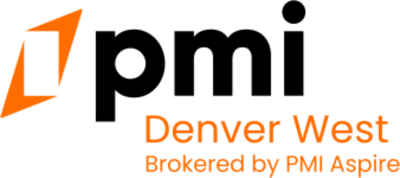In a city like Denver, where the weather can shift from sunshine to snow within a matter of hours, landlords must stay ahead of property maintenance. Failing to anticipate seasonal needs or routine upkeep often leads to emergencies that cost far more in time, money, and tenant trust than planned, preventive efforts ever would.
At PMI Denver West, we work with landlords throughout the Denver metro area to create proactive maintenance strategies that minimize surprises and maximize property performance. From plumbing checks ahead of a freeze to scheduled HVAC tune-ups, a solid maintenance plan protects your investment while building stronger relationships with your tenants. For a deeper understanding of tenant responsibility in maintenance matters, our guide on legal and optional property maintenance responsibilities in Denver is a helpful resource.
Key Takeaways
- Preventive maintenance saves money by avoiding costly emergency repairs.
- Denver’s changing seasons require targeted, proactive upkeep throughout the year.
- Regular inspections help ensure compliance with Colorado housing regulations.
- Well-maintained properties increase tenant satisfaction and long-term ROI.
- PMI Denver West offers full-service maintenance coordination for local rental owners.
Why Preventive Maintenance Matters in the Denver Market
Preventive maintenance is all about foresight. Instead of fixing a problem after it disrupts tenant life or damages your property, you take action to ensure those issues don’t happen in the first place. This mindset is especially important in Denver’s variable climate, where snow, wind, and heat cycles put pressure on key systems year-round.
Denver landlords face risks like:
- Frozen pipes and cracked plumbing during cold snaps
- Roof and gutter damage from spring snowmelt or hail
- HVAC strain during hot, dry summers
- Foundation shifts due to dry spells or moisture imbalances
A structured maintenance schedule addresses these risks by ensuring major systems are monitored and serviced regularly. Some essential preventive tasks include:
- Biannual HVAC servicing and filter replacement
- Water heater flushing and safety valve testing
- Roof inspections and gutter cleaning
- Weatherproofing doors and windows
- Routine checks of smoke and carbon monoxide detectors
The Long-Term Financial Advantages of Proactive Care
Some landlords delay maintenance to reduce short-term spending. Unfortunately, this decision often results in expensive breakdowns that could’ve been prevented.
1. Minimize Emergency Repairs
What begins as a small leak or minor roof issue can evolve into extensive damage when left unattended. Preventive maintenance ensures these small problems are addressed early.
2. Extend the Lifespan of Systems
Denver’s cold winters and hot summers make HVAC systems work overtime. Regular servicing reduces wear and tear and extends the life of your heating and cooling systems.
3. Protect Property Value
Well-maintained homes show better, rent faster, and sell at higher prices. Whether you're renting or preparing to sell, upkeep plays a direct role in property value.
4. Avoid Legal Liabilities
Colorado landlords must maintain habitable properties. Regular inspections and maintenance help you comply with housing codes and avoid fines or lawsuits. If you’re considering professional support, our article on why outsourcing property management is a smart move provides insight into the benefits of delegating this responsibility.
5. Boost Tenant Retention
When maintenance is timely and consistent, tenants notice. Happy renters are more likely to renew, reducing turnover costs and vacancy periods.
Seasonal Maintenance Guidelines for Denver Rentals
Staying on top of seasonal shifts is essential in Denver, where the transition between seasons can be extreme and unpredictable.
Spring
- Clean gutters to prevent blockages from snowmelt
- Inspect the roof for winter-related damage
- Check and test sump pumps and drainage systems
- Service HVAC units before summer heat kicks in
Summer
- Replace air filters monthly to maintain airflow and efficiency
- Inspect landscaping for root or irrigation damage
- Check siding and paint for sun or hail wear
- Inspect the foundation for movement or cracking
Fall
- Flush and test water heaters for sediment buildup
- Clean and inspect the furnace
- Check attic insulation and weather stripping
- Trim trees away from the roof and windows to prevent winter damage
Winter
- Wrap exterior plumbing and insulate exposed pipes
- Test carbon monoxide detectors and check ventilation systems
- Remove snow buildup from walkways and roof edges
- Ensure fireplaces and chimneys are clean and functional
Following this maintenance rhythm prevents weather-related surprises and spreads the cost of care evenly throughout the year.
Why Property Inspections Are a Landlord’s Best Tool
Inspections are not just about catching damage—they’re about preventing it. Routine evaluations give landlords a detailed view of the property’s condition and help enforce tenant compliance with the lease.
Types of inspections that support your maintenance plan include:
- Move-in inspections: Document the property’s baseline condition.
- Mid-lease inspections: Catch small issues early and ensure lease compliance.
- Move-out inspections: Evaluate tenant damage and plan for necessary turnover work.
In Denver, mid-lease inspections are especially useful in detecting seasonal wear or spotting issues related to heating, moisture intrusion, or pest entry. For more guidance on how to handle inspections properly, check out our blog on rental property inspections for Denver landlords.
How PMI Denver West Simplifies Preventive Maintenance
Many landlords understand the value of preventive maintenance, but implementing it effectively requires time, organization, and access to trusted vendors. That’s where PMI Denver West steps in.
We offer a comprehensive suite of property maintenance services, including:
- Tailored Maintenance Schedules based on property type, age, and occupancy
- Access to Vetted Vendors across plumbing, HVAC, roofing, landscaping, and more
- 24/7 Emergency Maintenance Response for tenant peace of mind
- Online Owner Portal for easy tracking of work orders, costs, and approvals
- Routine Property Inspections to keep you informed and your investment protected
Whether you own one unit or a growing portfolio, we provide the support you need to manage property upkeep efficiently, legally, and profitably.
Conclusion
Denver’s diverse climate, combined with the fast-paced rental market, makes preventive maintenance a critical aspect of successful property management. Staying ahead of seasonal issues, system failures, and compliance concerns protects your investment and strengthens your relationship with tenants.
PMI Denver West is here to make maintenance simple. From seasonal planning to vendor coordination, our team offers expert guidance and full-service solutions to help you safeguard your property and keep it performing at its best. Contact us today to create a maintenance plan that meets your goals and fits the demands of the Denver market.
Frequently Asked Questions
1. How often should I inspect my Denver rental property?
At a minimum, landlords should inspect at move-in, mid-lease, and move-out. Seasonal inspections are ideal to catch climate-related issues early.
2. What systems need the most preventive care in Denver?
HVAC, plumbing, roofing, and insulation are the most vulnerable due to Denver’s extreme temperature fluctuations.
3. Can preventive maintenance help with tenant retention?
Yes. Tenants are far more likely to renew leases in well-maintained properties where maintenance is handled quickly and professionally.
4. Is emergency maintenance included with PMI Denver West services?
Absolutely. We offer 24/7 emergency response to protect your property and provide peace of mind to both landlords and tenants.
5. What happens if I don’t keep up with property maintenance?
Neglecting preventive care can result in costly damage, legal liability, tenant dissatisfaction, and reduced property value.


